Rohan is rewarded with a promotion for his extraordinary performance in his current role. But as he enters the new leadership role, he realises that it is not that easy.
He feels it is easy to do one’s job, but very difficult to manage and motivate the team. He struggles with the new challenges and as a result, his performance suffers.
In less than a year, the company loses a valuable performer and is saddled with a reluctant leader.
Has this ever happened in your organisation?
Often, not having a proper leadership development program results in unprepared employees fitting into management roles. An unprepared leader may not be able to lead people efficiently, thus lowering the productivity of the organisation.
Importance of Leadership Training in Organisations
In today’s world, organisations’ approach has evolved from siloed to multi-department (or matrixed) collaboration. Adding to that, rapid changes like dynamic work environments, digitisation, new technologies, managing hybrid workforce, multi-generational teams etc demand that a leader knows more than just managing teams and processes.
This means that leaders need to continuously upskill and reskill so they can deal with this dynamic environment.
Here are some eye-opening statistics that emphasise the need for leadership training.
1. According to a Gallup study, only 10% of people are natural leaders. Even so, another 20% can be trained to be great leaders as they possess certain leadership qualities and basic managerial talent.
2. Zippia finds that almost 83% of businesses recognise the importance of leadership development at all levels, but only 5% have implemented them.
3. When it comes to training for critical leadership skills for the future, only 28% of leaders are actually being trained (as per DDI World).
4. Grooming next-generation leadership is missing in most organisations. According to Zippia, 69% of millennials reported feeling a lack of leadership development.
5. A Gartner survey on HR trends and priorities for 2022 revealed that 68% of HR leaders chose “Building critical skills and competencies” as their number one priority, followed by change management and preparing the current & future leadership pipeline.
Benefits of Leadership Training for Your Organisational Development
Good leadership training makes the leaders accountable, assertive, delegate effectively, encourage innovation and influence the team without authority.
 Such leaders build relationships based on trust, open dialogue and transparency. Most importantly, training people to be effective leaders inspires others to become leaders. This builds a sustainable leadership pipeline for your organisation.
Such leaders build relationships based on trust, open dialogue and transparency. Most importantly, training people to be effective leaders inspires others to become leaders. This builds a sustainable leadership pipeline for your organisation.
The benefits of having such efficient leaders running the organisation can be summed up as
Positive Work Culture
When the leaders lead well, the team is motivated and inspired to outperform. It builds teamwork, employee engagement, increases productivity and improves overall business performance.
Drive the organisation to achieve more
When leaders become good at delegation, they are able to push their team more and hence are able to move the needle on innovation significantly. Secondly, with good delegation, the leaders are able to create an outcome-oriented culture, as they learn how to be assertive enough to drive outcomes and are able to handle resistance.
Attract New Talent
Getting new talent on board is easier as the positive work culture and the potential to grow in the organisation attract them. Good leaders are empathetic and are accountable for mentoring new employees, developing them and aligning them with the vision of the company.
Employee Retention
Your current employees are less likely to leave you as they find it best here, where they are respected and they themselves are growing, because the leader is growing. And the longer they stay, the better for the company as the work culture will be ingrained in them. Leadership training typically encourages leaders to find new ways to develop and manage people. Empowered leaders give them the freedom to innovate and thrive. 
Increased Agility and Ability to navigate change
Agile leaders are able to sense, assess and seize opportunities, and navigate the change in the organisation. Their leadership skills build teams that are more responsive, innovative, adaptable and productive.
Prepare Future Leaders
It is said that The single most important task for a leader is to create leaders who are better than him/her. Getting the next set of leaders ready before the current leadership moves on is one of the critical needs for any organisation. And leadership assessments help identify potential candidates, and skills training develops them as great future leaders. This is especially true as Gen X is retiring and millennials are taking over leadership roles.
Thus, a leadership training program prepares the leaders in your organisation to lead effectively immaterial of the challenges and adversities presented to them.
Check out the leadership training program offerings from The Catalyst.
Leadership Development Programs |
Learning Outcomes |
Target Audience |
Delegating effectively |
|
Middle managers |
Leadership in a VUCA world |
|
Senior leaders |
Building leadership capability in team members |
|
Middle/ senior managers |
Building trust and negotiating effectively |
|
Middle/ senior managers |
Advanced Leadership |
|
Senior managers/ leaders |
Leading and Managing Change |
|
Middle/ senior managers |
Effective decision making |
|
New managers |
Managing a remote workforce |
|
All employees |
Setting direction and pace as a leader |
|
Middle managers |
Leading the millenial workforce |
|
Middle managers |
Our Programs
Here is a list of all our Leadership Programs.
Success Stories
Check out some of the earlier projects undertaken by The Catalyst.
Testimonials
Read what our participants have to say about our programs!





Leave a Reply
Your email is safe with us.
You must be logged in to post a comment.